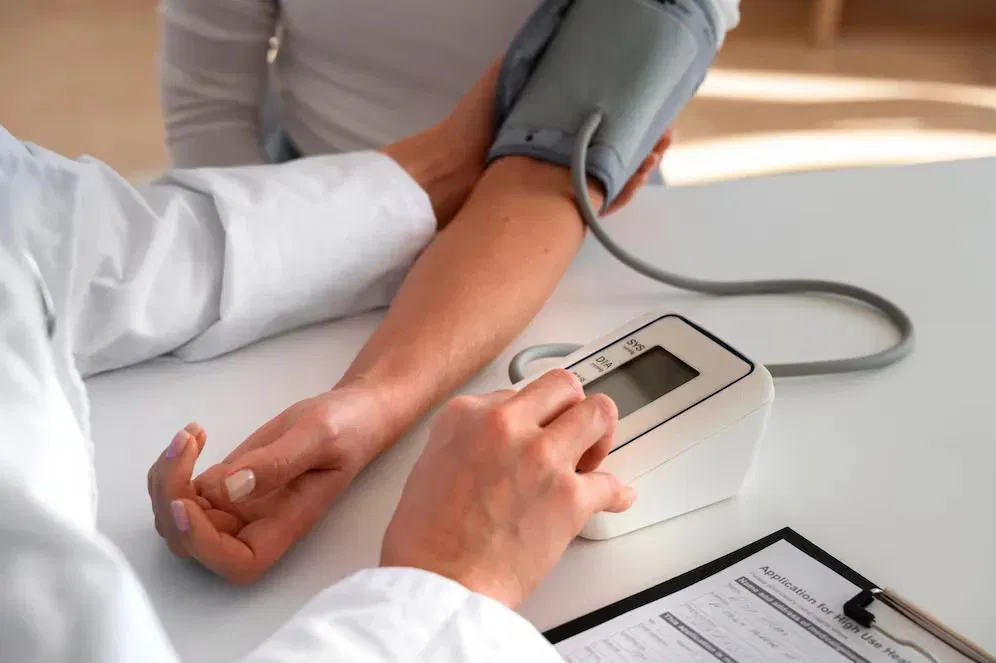
TMJ Disorders and Hypertension: Breaking Down the Relationship
In recent years, research has uncovered potential connections between various health conditions that were once considered unrelated. One such relationship that has garnered interest is the association between temporomandibular joint (TMJ) disorders and hypertension, also known as high blood pressure. This unanticipated connection could have significant implications for individuals suffering from both TMJ disorders and hypertension, as well as for healthcare providers seeking to provide comprehensive care for their patients.
In this article, we will investigate the potential link between TMJ disorders and hypertension, focusing on the reasons behind this association and the consequences it may have on patients’ overall health. By shedding light on this relationship, we hope to offer valuable information for those suffering from these conditions and healthcare providers aiming to better understand and manage their patients’ needs. Furthermore, we will discuss the non-surgical treatment options available at our renowned center as we strive to provide the highest standard of care for those affected by TMJ disorders in Illinois.
As we navigate through this complex correlation between TMJ disorders and hypertension, our goal is to empower readers with knowledge and resources to make informed decisions about their healthcare journey.
Understanding TMJ Disorders and Hypertension
Before diving into the connection between TMJ disorders and hypertension, it is essential to understand these two conditions individually. TMJ disorders refer to a group of conditions that affect the temporomandibular joint, the hinge-like joint that connects the lower jaw to the skull. Common symptoms of TMJ disorders include jaw pain, limited jaw movement, clicking or popping sounds, and headaches.
On the other hand, hypertension, or high blood pressure, is a common cardiovascular condition characterized by consistently elevated blood pressure readings. Those with hypertension often experience no symptoms, which is why it is frequently referred to as the “silent killer.” Hypertension increases the risk of heart disease, stroke, and other serious health issues.
Exploring the Connection between TMJ Disorders and Hypertension
While the relationship between TMJ disorders and hypertension may not be immediately obvious, several factors may contribute to the association between these two conditions. Some possible explanations for this connection include:
1. Pain and stress: Chronic pain resulting from TMJ disorders can lead to increased stress and anxiety levels in affected individuals. Stress is a known contributor to hypertension, as it can cause blood vessels to constrict, leading to higher blood pressure levels.
2. Sleep disturbances: TMJ disorders can also contribute to sleep issues, such as sleep apnea or chronic snoring. Poor sleep quality and sleep disorders are associated with an increased risk of developing hypertension, further linking the two conditions.
3. Shared risk factors: Both TMJ disorders and hypertension share common risk factors, such as obesity, smoking, and alcohol consumption, possibly leading to a higher prevalence of both conditions in certain populations.
While research exploring the connection between TMJ disorders and hypertension is ongoing, healthcare providers like Dr. Hitesh Patel must consider this relationship when treating patients with either or both conditions.
Diagnosing TMJ Disorders and Hypertension in Patients
Accurate diagnosis is vital to addressing TMJ disorders and hypertension effectively. Dr. Hitesh Patel and other healthcare professionals must work together to ensure a comprehensive approach to diagnosis and subsequent treatment. Key steps in diagnosing TMJ disorders and hypertension include:
1. Thorough patient history: A detailed medical and dental history can help healthcare providers determine the presence of risk factors, such as family history, obesity, and lifestyle habits, that may contribute to the development of TMJ disorders and hypertension.
2. Clinical examination: A comprehensive physical examination of the jaw, neck, shoulders, and overall posture is critical for identifying signs of TMJ disorders. Similarly, regular blood pressure monitoring is crucial for detecting hypertension in patients.
3. Additional testing: Depending on the individual case, supplementary diagnostic tests, such as imaging studies for TMJ disorders or blood tests for hypertension, may be necessary to confirm the diagnosis.
By collaborating with other healthcare providers and utilizing appropriate diagnostic tools, professionals like Dr. Hitesh Patel are better equipped to determine the presence and extent of TMJ disorders and hypertension in their patients.
Non-Surgical Treatment Approaches for TMJ Disorders and Hypertension
Healthcare providers need to address both the TMJ disorders and hypertension in affected individuals, as managing one condition may positively impact the other. Dr. Hitesh Patel and his team recommend non-surgical treatment options for TMJ disorders, which may also have potential benefits for hypertension management. Some effective strategies include:
1. Custom oral appliances: Specially designed oral appliances can help improve TMJ function and alleviate pain, subsequently reducing stress levels and potentially impacting hypertension.
2. Physical therapy: Targeted exercises and manual therapy techniques can improve TMJ function and alleviate muscle tension, which may, in turn, help reduce stress and blood pressure levels.
3. Lifestyle modifications: Promoting a healthy lifestyle is essential for managing both TMJ disorders and hypertension. Encouraging weight loss, regular exercise, a balanced diet, stress management techniques, and smoking cessation can significantly contribute to improved overall health and reduced prevalence of both conditions.
4. Medication management: While medications may not directly address TMJ disorders, certain drugs may help manage hypertension and improve overall well-being for affected individuals.
Embracing Comprehensive Care for TMJ Disorders and Hypertension
To effectively address the relationship between TMJ disorders and hypertension, healthcare providers like Dr. Hitesh Patel need to adopt a comprehensive care approach that accounts for both conditions. By acknowledging the potential connection between TMJ disorders and hypertension, healthcare providers can work towards offering their patients more tailored treatment plans, which focus on non-surgical options and lifestyle modifications to achieve optimal health outcomes.
At Suburban TMJ and Sleep Center, we are committed to providing the highest standard of care for those affected by TMJ disorders, with a focus on understanding and addressing the potential impacts of other health conditions, such as hypertension. Schedule a consultation with Dr. Hitesh Patel today to discover how our knowledgeable and compassionate team can support your journey towards a healthier, pain-free life.
